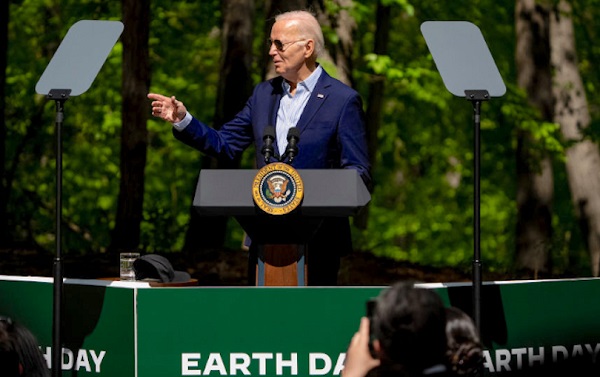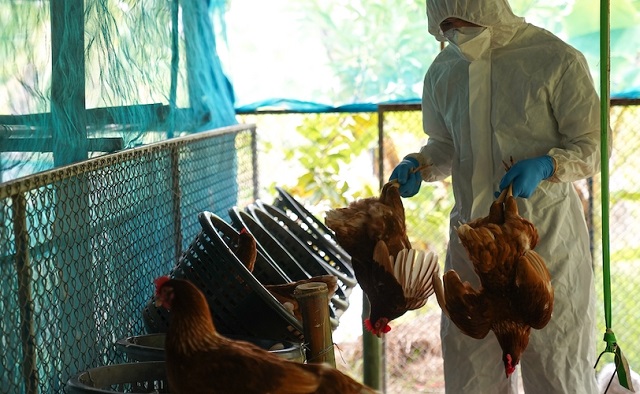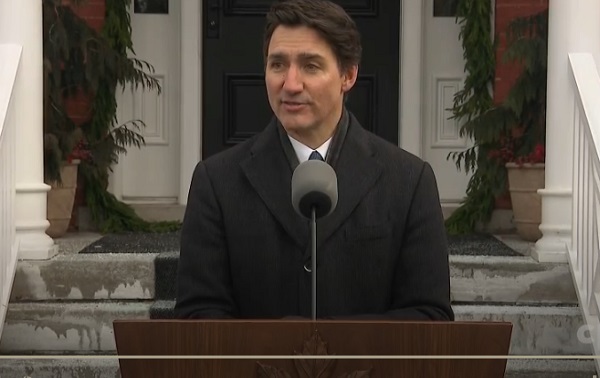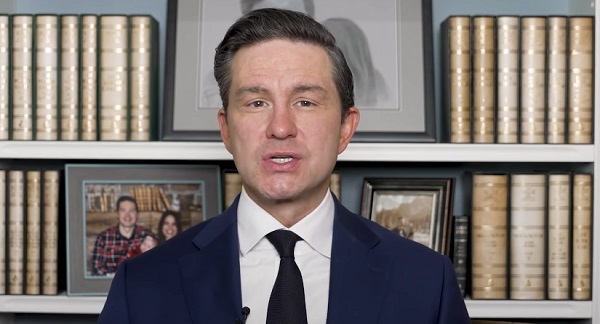Energy
Ottawa’s emissions cap—all pain, no gain

From the Fraser Institute
By: Julio Mejía, Elmira Aliakbari and Tegan Hill
According to a recent analysis by the Conference Board of Canada think-tank, the cap could reduce Canada’s GDP by up to $1 trillion between 2030 and 2040, eliminate up to 151,000 jobs by 2030, reduce federal government revenue by up to $151 billion between 2030 and 2040, and reduce Alberta government revenue by up to $127 billion over the same period.
According to an announcements last week by Premier Danielle Smith, the Alberta government will use the Alberta Sovereignty within a United Canada Act to challenge Ottawa’s proposal to cap greenhouse gas emissions from the oil and gas sector at 35 per cent below 2019 levels by 2030.
Premier Smith, who said the cap will harm the economy and represents an overstep of federal authority, also plans to prevent emissions data from individual oil and gas companies from being shared with Ottawa. While the federal government said the cap is necessary to fight climate change, several studies suggest the cap will impose significant costs on Canadians without yielding detectable environmental benefits.
According to a recent report by Deloitte, a leading audit and consulting firm, the cap will force Canadian firms to curtail oil production by 626,000 barrels per day by 2030 or by approximately 10.0 per cent of the expected production—and curtail gas production by approximately 12.0 per cent.
Deloitte estimates that Alberta will be hit hardest, with 3.6 per cent less investment, almost 70,000 fewer jobs, and a 4.5 per cent decrease in the province’s economic output (i.e. GDP) by 2040. Ontario will lose 15,000 jobs and $2.3 billion from its economy by 2040. And Quebec will lose more than 3,000 jobs and $0.4 billion from its economy during the same period.
Overall, the country will experience an economic loss equivalent to 1.0 per cent of the value of the entire economy (GDP), translating into lower wages, the loss of nearly 113,000 jobs and a 1.3 per cent reduction in government tax revenues. Canada’s inflation-adjusted GDP growth in 2023 was a paltry 1.3 per cent, so a 1 per cent reduction would be a significant economic loss.
Deloitte’s findings echo previous studies. According to a recent analysis by the Conference Board of Canada think-tank, the cap could reduce Canada’s GDP by up to $1 trillion between 2030 and 2040, eliminate up to 151,000 jobs by 2030, reduce federal government revenue by up to $151 billion between 2030 and 2040, and reduce Alberta government revenue by up to $127 billion over the same period.
Similarly, another recent study published by the Fraser Institute found that the cap would reduce production and exports, leading to at least $45 billion in lost economic activity in 2030 alone, accompanied by a substantial drop in government revenue.
Crucially, these huge economic costs to Canadians will come without any discernable environmental benefits. Even if Canada entirely shut down its oil and gas industry by 2030, eliminating all GHG emissions from the sector, the resulting reduction in global GHG emissions would amount to a mere four-tenths of one per cent with virtually no impact on the climate or any detectable environmental, health or safety benefits.
Given the demand for fossil fuels, constraining oil and gas production and exports in Canada would likely merely shift production to other countries with lower environmental and human rights standards such as Iran, Russia and Venezuela. Consequently, global GHG emissions would increase, not decrease. No other major oil and gas-producing country has imposed a similar cap on its leading export sector.
The Trudeau government’s proposed cap, which still must pass the House and Senate, would further strain an already struggling Canadian economy, and to make matters worse, do virtually nothing to improve the environment. The government should cancel the cap plan given the economic costs and nonexistent environmental benefits.
Julio Mejía
Policy Analyst
Elmira Aliakbari
Director, Natural Resource Studies, Fraser Institute
Tegan Hill
Director, Alberta Policy, Fraser Institute
Daily Caller
Trump Calls Biden’s Drilling Ban ‘Worst Abuse Of Power I’ve Ever Seen’


From the Daily Caller News Foundation
By David Blackmon
Kish characterized Biden’s move as “a petulant act of a Hard Left Establishment out to punish 340 million Americans who rejected their calls to bow to their Climate Religion and its vows of poverty.”
The Biden White House said early Monday that outgoing President Joe Biden has ordered huge swaths of U.S. federal waters off-limits to future leasing and drilling for oil and natural gas. The ban includes the entire offshore Atlantic, offshore Pacific, the Eastern Gulf of Mexico, and the Northern Bering Sea.
All told, the regions impacted by the ban encompass 625 million acres, an area bigger than the states of Texas and Alaska combined. It is also significantly larger in scope than the Louisiana Purchase, which spanned 530 million acres.
“My decision reflects what coastal communities, businesses, and beachgoers have known for a long time: that drilling off these coasts could cause irreversible damage to places we hold dear and is unnecessary to meet our nation’s energy needs,” Biden said in a statement. “It is not worth the risks.”
Ironically, the Biden ban includes the Atlantic areas where his administration has spent billions of dollars subsidizing the construction of massive industrial wind power facilities. Those developments are currently the source of rising concerns related to impacts on sea mammals, seabirds and the once-thriving commercial fishing industry. All are concerns the administration has refused to adequately address in any real way.
Dan Kish, senior fellow at the D.C.-based Institute for Energy Research think tank, pointed to the “irony of his proposed windfarms in the same waters he is closing to American oil and gas is they are not going to be built. The electricity they produce is so expensive it is deindustrializing Europe and beginning to topple governments. The only question is whether the governments or the windmills will topple first.”
Kish characterized Biden’s move as “a petulant act of a Hard Left Establishment out to punish 340 million Americans who rejected their calls to bow to their Climate Religion and its vows of poverty.” Kish added that Biden and his White House “couldn’t care less about the national security implications, as witnessed by their feckless record that has lit fires around the world while they try to extinguish our gas stoves at home.”
In an interview with Salem Radio national talk show host Hugh Hewitt Monday, incoming President Donald Trump said he would reverse Biden’s order on his first day in office.
“I see that it has just come across that Biden has banned oil and gas drilling across 625 million acres of U.S. coastal territory,” Trump began, adding: “It’s ridiculous. I’ll un-ban it immediately. I have the right to un-ban it immediately.”
Trump acknowledge that the same climate-alarm groups behind the Biden ban will challenge any attempt to rescind it in court, saying, “They’ll do everything they can to make it as difficult as possible. They talk about a transition — they always say they want to have a smooth transition from party to party. Well, they’re making it really difficult. They’re throwing everything they can in the way.”
Trump concluded by telling Hewitt that Biden’s order amounts to “the worst abuse of power I’ve ever seen.”
The White House invoked the drilling ban under Section 12 of the 1953 Outer Continental Shelf Lands Act (OCSLA). It is a section of that law that previous presidents — including Barack Obama and Trump himself — have used to authorize similar drilling bans.
A reading of that provision makes it clear that Congress intended it to be used solely for reasons of national security and during national emergencies. Unfortunately, for the prospects of a Trump reversal, the law does not include any provision for revoking such bans.
Previous presidential bans have never been challenged all the way up through the Supreme Court, though a challenge by the Trump Justice Department to Obama’s ban in 2017 resulted in the set-aside being upheld by an Obama-appointed district judge in 2019. Trump’s Department of Justice chose not to challenge the decision.
This is clearly a political power move by the Biden White House, another payoff to the Democratic Party’s big climate-alarm funders. Whether Trump and his appointees can come up with an effective strategy to challenge it remains to be seen, but if Trump’s comments to Hewitt are any indication, the incoming president is fully prepared to take on the fight.
David Blackmon is an energy writer and consultant based in Texas. He spent 40 years in the oil and gas business, where he specialized in public policy and communications.
Alberta
Province to double Alberta’s oil production

The Government of Alberta is working with partners to increase pipeline capacity in pursuit of its goal to double crude oil production and increase exports to the United States.
Alberta is a strong partner to the United States, currently delivering more than 4.3 million barrels per day to the U.S. The province is committed to increasing Alberta’s crude oil production and preserving and adding pipeline capacity, supporting North American energy security as well as enabling increased U.S. production.
The Government of Alberta is taking immediate action to accelerate its plan to increase pipeline capacity to get more product to market and more value for its product.
A critical step towards achieving this goal includes working directly with industry. This is why Alberta’s government has signed a letter of intent with Enbridge, which will form a working group with the Alberta Petroleum Marketing Commission (APMC). The working group will evaluate future egress, transport, storage, terminalling and market access opportunities across the more than 29,000 kilometres of the Enbridge network in support of moving more Alberta oil and gas to Canadians and American partners.
“The world needs more Alberta oil and gas, and we need to make sure Alberta is meeting those needs. Our objective of doubling oil production aligns with Enbridge’s plans to enhance its existing pipeline systems and we look forward to partnering with them to enhance cross-border transport solutions. This will also allow us to play a role in supporting the United States in its energy security and affordability goals.”
The working group will focus on preserving and optimizing egress, developing opportunities to expand along Enbridge’s current footprint, and developing new solutions to improve global market access and maximize the value of Alberta’s commodity. Additionally, it will work with government to cut red tape and streamline regulations and permitting approvals. It will also assess opportunities for shared investment and benefit to both Albertans and Enbridge by leveraging BRIK (Bitumen-Royalty-In-Kind) barrels.
“A strong and growing Alberta oil and gas transport and storage network will allow the Government of Alberta to maximize the economic benefits for all Albertans from our bitumen and natural gas royalties. We must also pursue regulatory reform where needed so Alberta can continue to be an attractive place for companies to invest.”
“Enbridge has 75 years of experience delivering Alberta’s energy, safely and cost-effectively to support the region’s economy, unlock export value and help meet North American demand. We’re prepared – and exceptionally well-positioned – to work with producers and governments to deliver capacity as production ramps up, providing cost-effective, scalable, executable solutions now and through the decade that support North American energy security, reliability and affordability.”
-

 Brownstone Institute2 days ago
Brownstone Institute2 days agoThe Pandemic Planners Come for Hoof and Hen…and Us Again
-

 National1 day ago
National1 day agoTrudeau Resigns! Parliament Prorogued until March 24
-

 Daily Caller1 day ago
Daily Caller1 day agoJustin Trudeau Reportedly Planning To Resign
-

 Business2 days ago
Business2 days agoApple Settles $95M Class Action Over Siri Privacy Violations
-

 Catherine Herridge1 day ago
Catherine Herridge1 day agoFour years later the FBI releases new footage of Jan 6 Pipe Bomber
-

 National1 day ago
National1 day agoThis Changes Nothing – Conservative Leader Pierre Poilievre
-

 COVID-192 days ago
COVID-192 days agoFDA lab uncovers excess DNA contamination in COVID-19 vaccines
-

 National1 day ago
National1 day agoTrudeau’s Last Stand, Resignation Rumors Swirl as Liberals Face Political Oblivion









